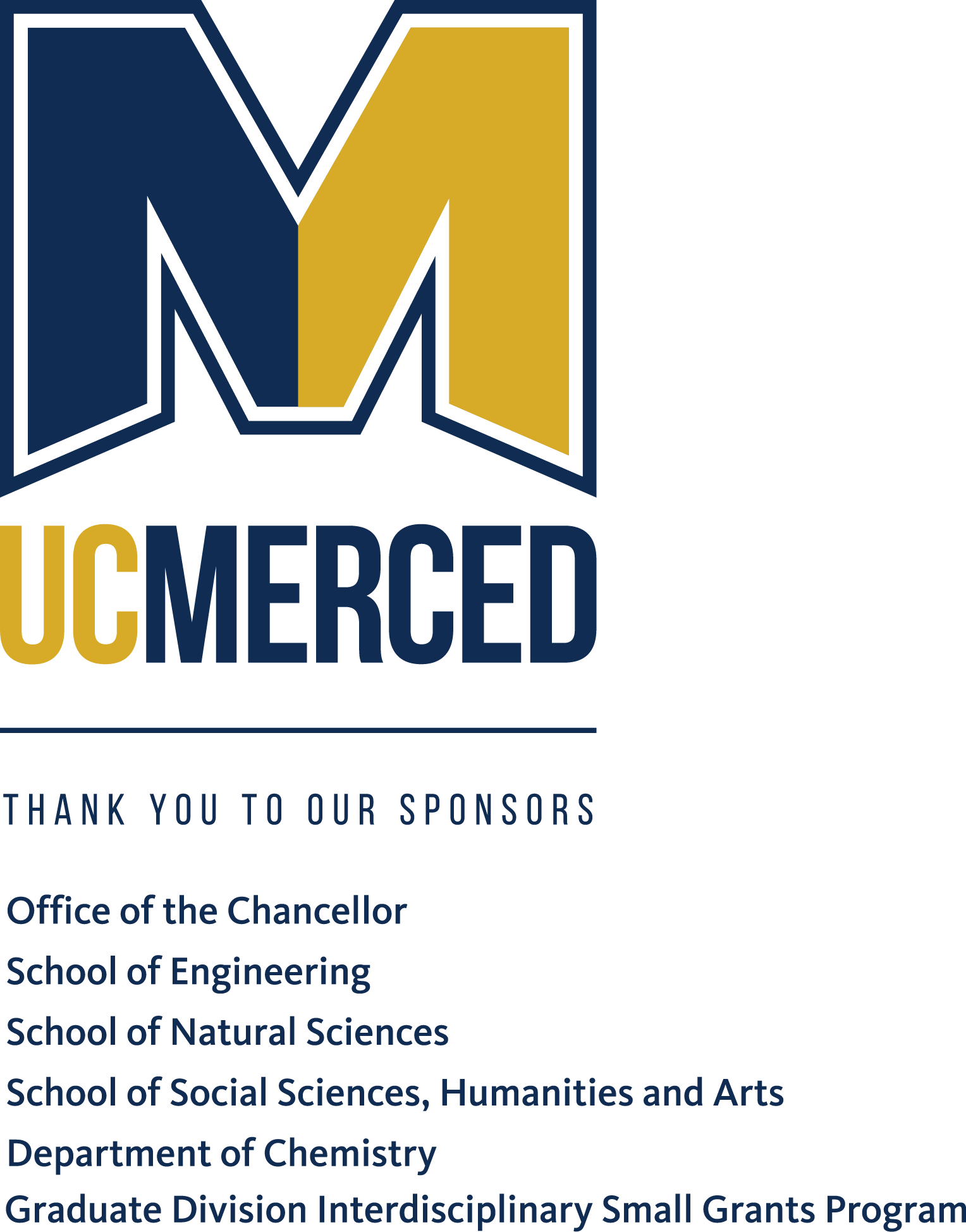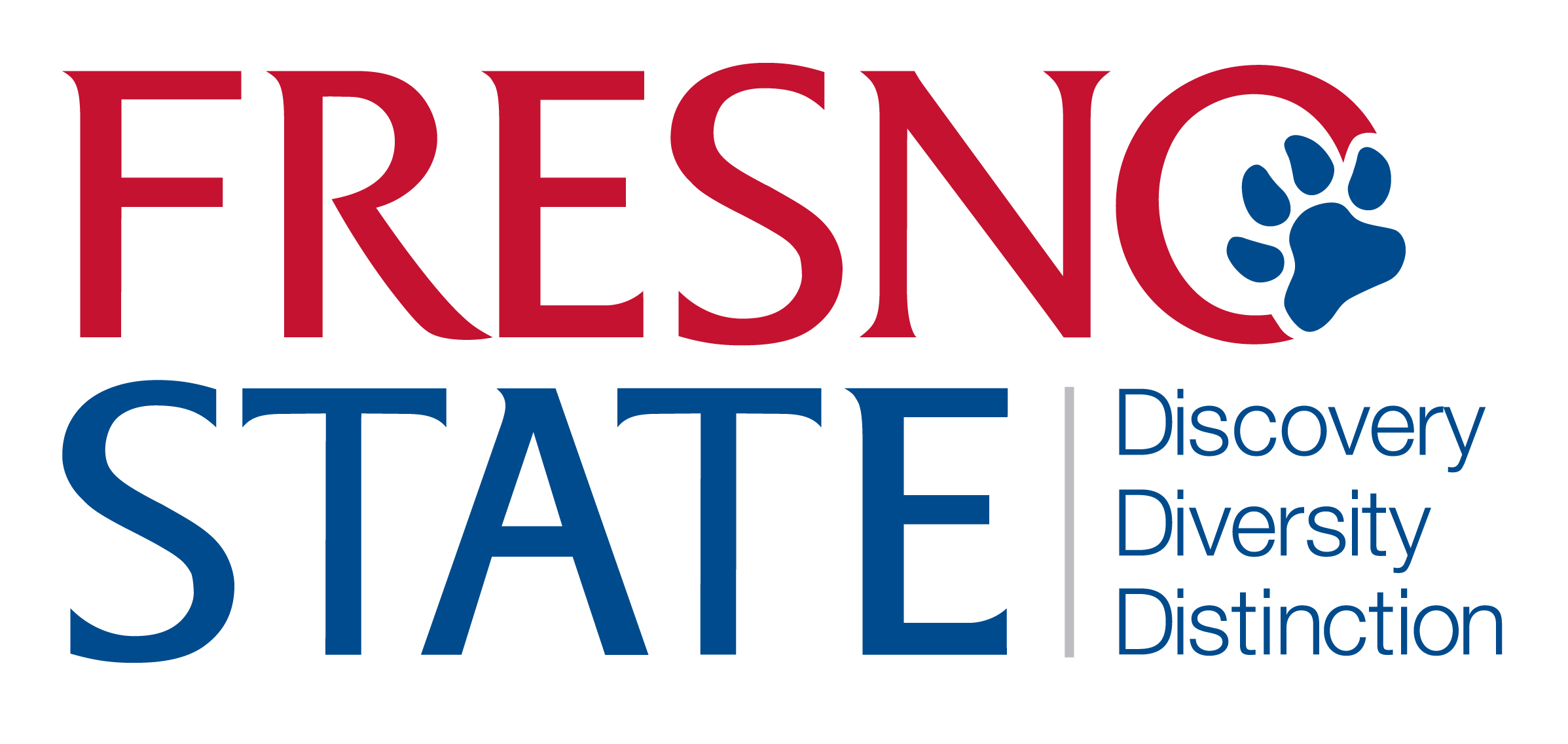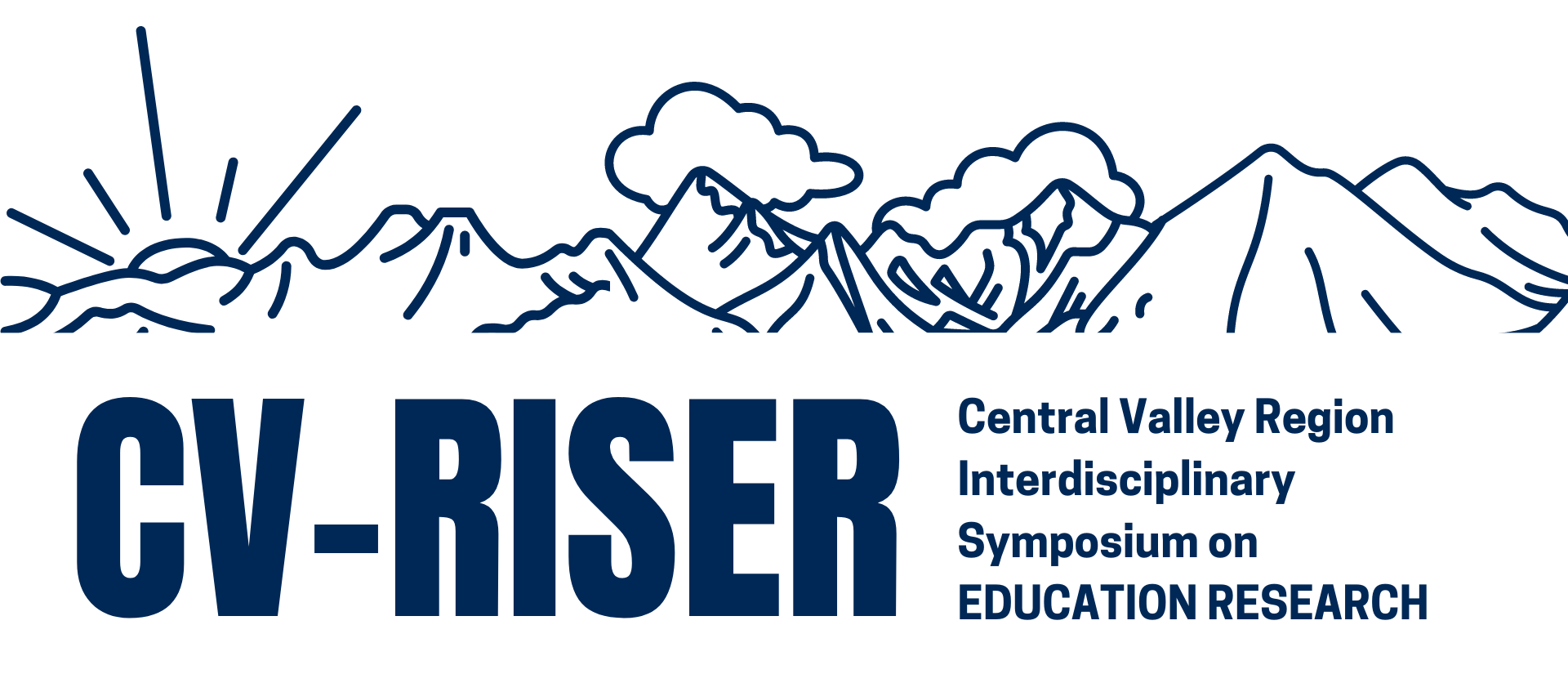Paving the Pathway for Education Research in Central Valley Colleges and Universities
JULY 22–24, 2022UC Merced Conference CenterDOWNLOAD CV-RISER 2022 PROGRAM
Interested in the goal? CONSIDER DONATING! |
CV-RISER GoalResearch OutcomesSymposium DescriptionAbout our Keynote SpeakersPlanning CommitteeFull ProgramFAQSponsors
|
CV-RISER Goal
CV-RISER aims to bring together researchers, educators, students, and leaders in the region’s institutions to a) discuss recent education research efforts and scientific evidence, b) propose pathways to addressing voids in education research, and c) facilitate interdisciplinary conversations and inter-institutional collaborations that elevate educational research and ensure research findings are documented, disseminated, and implemented to have a positive experience on our students' learning.
Research Outcomes
- The primary expected outcome of CV-RISER will be to disseminate education research findings from the Central Valley community, investigate trends in education research, and identify future directions for education research and practice.
- The secondary expected outcome is to encourage and facilitate networking and new interdisciplinary research collaborations between faculty, staff, and students from Central Valley institutions that result in rigorous research that addresses some of our nation’s most pressing education needs.
- The third expected outcome is to provide a space for undergraduate and graduate students to discover and understand the field of educational research and potential career pathways.
Symposium Description
Providing students with a high-quality education is integral to the success of any college or university, and yet what makes teaching and learning effectively is not intuitive for most instructors. Evidenced-based education research is on the rise in many disciplines outside of Schools of Education and aims to identify effective instructional strategies and pedagogical approaches that facilitate deep learning. In the Central Valley of California, discipline-based education research (DBER) is still in its nascent stages, so it is critical to establish and nurture a community that focuses on evidence-based education principles and strategies that will positively impact the students across this region. Since all five institutions (California State University (CSU) Stanislaus, CSU Fresno, Fresno City College, Merced College, and UC Merced) are minority-serving institutions (MSIs), the potential to design rigorous research that addresses some of the most pressing needs for our student population is high.
Education research is interdisciplinary by nature, requiring expertise in content, pedagogical methodologies, and empirical data collection and analysis. As a result, it relies on methods from diverse fields, such as psychology, economics, mathematics, computer science, cognitive science, sociology, engineering, chemistry, mathematics, physics, and biology. Even so, most college structures impede such interdisciplinary research, and the interdisciplinary connections necessary to carry out this research across the Central Valley are yet to be formed. CV-RISER offers an opportunity for interdisciplinary and cross-campus collaborations that will best meet the needs of the Central Valley student population.
About Our Keynote Speakers
Dr. Alexis Patterson Williams is joining us from the School of Education at the University of California, Davis. She is dedicated to increasing the participation of women of color in STEM fields. Her research explores the intersection of equity studies, social psychology, and science education. More recently, she is focused on unpacking issues of equity and the role of social-emotional skills at play during student group work.
Dr. Patterson Williams is a native Californian and received her undergraduate degree from UC Berkeley and her Master’s degree from Stanford University. She received her doctorate in Curriculum Studies and Teacher Education in Science from Stanford’s Graduate School of Education. Prior to graduate school, she worked in Oakland Unified School District as an Assistant Director of an after-school program, a middle school science teacher, and as an intervention instructor at an elementary school. Dr. Patterson Williams earned her Multiple Subject Teaching Credential from CSU East Bay.
Dr. Saúl Jiménez-Sandoval was appointed president of Fresno State in May 2021. Jiménez-Sandoval previously served as Fresno State's provost and vice president for academic affairs, and in that role was the university's chief academic officer.
He has a long history with Fresno State, having first joined the university as a member of the faculty in 2000. Over two decades of service to the university, he has served as a professor of Spanish and Portuguese, coordinator of the Spanish master of arts, chair of the Department of Modern and Classical Languages and Literatures, interim associate dean of the College of Arts and Humanities and dean of the College of Arts and Humanities.
His relation to the Central Valley is even more deeply rooted, as he moved with his family to the area to work on the family farm as a child, and as he and his wife, Mariana, decided to raise their sons in Fresno.
Symposium Planning Committee
Jackie Shay, University of California, Merced (Chair)
Zenaida Aguilar-Munoz, University of California, Merced
Jourjina Alkhouri, University of California, Merced
Sarah Bissonnette, California State University, Stanislaus
Dermot Donnelly-Hermosillo, California State University, Fresno
Cristine Donham, University of California, Merced
Brittany Harding, University of California, Merced
Aletha Harven, California State University, Stanislaus
Petra Kranzfelder, University of California, Merced
Don Lopez, Fresno City College
Erik Menke, University of California, Merced
Virginia Montero Hernandez, California State University, Stanislaus
Brandon Tenn, Merced Community College
Emily Walter, California State University, Fresno
Randy Yerrick, California State University, Fresno
CV-RISER Subcommittees
Abstract Selection and Program Development
Sarah Bissonnette, California State University, Stanislaus
Dermot Donnelly-Hermosillo, California State University, Fresno
Erik Menke, University of California, Merced
Community Building
Emily Walter, California State University, Fresno
Keynote Speaker Selection
Zenaida Aguilar-Muñoz, University of California, Merced
Dermot Donnelly-Hermosillo, California State University, Fresno
Petra Kranzfelder, University of California, Merced
Emily Walter, California State University, Fresno
Student Research Competition
Sarah Bissonnette, California State University, Stanislaus (co-chair)
Petra Kranzfelder, University of California, Merced (co-chair)
Emily Walter, California State University, Fresno
Dermot Donnelly-Hermosillo, California State University, Fresno
Erik Menke, University of California, Merced
Emily Walter, California State University, Fresno
Child Care
Erik Menke, University of California, Merced
Jackie Shay, University of California, Merced
Danielle Waite, University of California, Merced
Program and Symposium Topics
Friday, July 22, 2022
CV-RISER Mixer Meet & Greet: 6:00–9:00 PM
El Capitan Hotel (in the Courtyard), 609 W Main St, Merced, CA 95340
Saturday, July 23, 2022
Check-In & Breakfast (Foyer) –– 7:30–9:00 AM
UC Merced Early Childhood Education Center Daycare (Room 225) – 7:30 AM – 8:45 PM
Poster Set-Up (Room 105) –– 7:30–8:45 AM
Symposium (Main Ballroom) –– 8:45 AM – 8:30 PM
Opening Remarks
8:45 AM – Jackie Shay, CV-RISER Committee Chair, Associate Director Center for Engaged Teaching and Learning, UC Merced
8:50 AM – Sarah Frey, Vice Provost and Dean of Undergraduate Education, UC Merced
8:55 AM – Juan Sánchez Muñoz, Chancellor, UC Merced
Session 1: Mapping Central Valley Student Narratives: Access, Identity, and Validation
9:00–10:10 AM
Session Chair: Don Lopez, Fresno City College
Alexis Atsilvsgi Zaragoza, University of California, Berkeley –– 9:00–9:20 –– The Small-Town Dilemma: Understanding the Spatial Imagination of Rural California and the Implications of Physical Place in Access to Higher Education for Black, Indigenous, People of Color (BIPOC)
Joseph Carranza, California State University, Stanislaus –– 9:25–9:45 –– Male Narratives in the Midst of Intersectionality: Cultural Practices for the Negotiation, Preservation, and Betterment of the Multiply Marginalized Self
Keith Ellis, Folsom Lake College –– 9:50–10:10 ––California's Community College Closet: LGBTQ+ Voices
BREAK –––– 10:10–10:30
Session 2: Frameworks for Assessing and Responding to Student Expectations and Needs
10:30–11:40 AM
Session Chair: Dermot Donnelly-Hermosillo, California State University, Fresno
Adrianna Signorini, University of California, Merced –– 10:30–10:50 –– SATAL's Classroom assessment and educational development integrated together
Antoinette (Toni) Stone, University of California, Merced –– 10:55–11:15 –– Student Epistemologies in the Age of the Pandemic
Adrienne Seegers, Columbia College –– 11:20–11:40 –– Brain-Targeted Teaching: A Tool for College Faculty?
LUNCH –––– 11:45–1:15
Session 3: Inquiry-Based Teaching and Learning in STEM
1:15–2:25 PM
Session Chair: Sarah Bissonnette, California State University, Stanislaus
Emily Walter, California State University, Fresno –– 1:15–1:35 –– Questing for Relevance: Exploring Student Outcomes from Creative Assessment "Quests" in a General Education Biology Course
Marcos García-Ojeda, University of California, Merced –– 1:40–2:00 –– Understand how mutation, selection and genetic drift promote genetic variation in a bacterial population
Dermot Donnelly-Hermosillo, California State University, Fresno –– 2:05–2:25 –– Development and Implementation of a Guided-Inquiry Laboratory Structure for an Introductory Chemistry Course
PHOTO BREAK –––– 2:25–2:45
Session 4: Breaking Barriers: Transformative Practices that Empower Students
2:45–3:55 PM
Session Chair: Erik Menke, University of California, Merced
Sarah Bissonnette, California State University, Stanislaus –– 2:45–3:05 –– CIENCIA at Stan State: fostering inclusive teaching through reflection, self-actualization, and cultural change among STEM faculty
Virginia Montero Hernandez, California State University, Stanislaus–– 3:10–3:30 –– Development of strategies to promote student empowerment
Carlos Perez, Fresno City College –– 3:35–3:55 –– Disrupting SLOs with DEI and Paradigm Shifts
Session 5: Poster Session
4:30–6:00 PM
UC Merced Conference Center Room 105
BANQUET DINNER AND KEYNOTE –––– 6:00–8:00 PM
Keynote Speaker: Alexis Patterson Williams,
University of California, Davis: Sustaining Disciplinary Literacy in Science: A Transformative, Just Model for Teaching the Language of Science
7:00–8:00 PM
Introduced by Zenaida Aguirre-Muñoz, University of California, Merced
Student Awards and Closing Remarks
8:00–8:30 PM
Petra Kranzfelder, University of California, Merced
Don Lopez, Fresno City College
Sunday, July 24, 2022
Breakfast (Foyer) –– 8:00–9:00 AM
UC Merced Early Childhood Education Center Daycare (Room 225) – 8:00 AM – 2:15 PM
Keynote Speaker: Saúl Jiménez-Sandoval
California State University, Fresno –– Energizing Education Research in the Central Valley
9:00–10:00 AM
Introduced by Emily Walter, California State University, Fresno
Breakout Sessions and Working Groups
10:00 AM–11:30 PM
Introduction to education research (Room 205): Facilitated by Jackie Shay –– This workshop is designed for faculty and educators. In this workshop, explore ways to begin collecting, interpreting, and learning from classroom data to improve your teaching.
Research meetings and discussion (Room 110): Facilitated by Petra Kranzfelder –– Part of the goal of this meeting is to help facilitate current and new education research projects across campuses and disciplines in the Central Valley. In this window, research groups will have a chance to meet with their teams or establish new research groups.
Student Session: Exploring the education research life (Room 210): Facilitated by Brittany Harding –– In this student open forum, education research students answer questions about a career in this field and how to prepare for it!
11:30–1:00 PM
Applications for culturally responsive teaching (Room 210): Facilitated by Virginia Montero Hernandez and Sarah Bissonnette –– In this discussion, educators introduce best practices for culturally responsive teaching, share their experience applying these practices, and engage in deeper conversations about the next steps.
Taking action on your campus (Room 110): Facilitated by Don Lopez –– For those not in research groups, what can you do to be a change agent on your campus and help encourage education research initiatives? In this brainstorm session, campus groups will team up to identify areas for improvement and tasks to take to make a change.
LUNCH AND GOODBYES –– 1:00–2:00 PM
Frequently Asked Questions (FAQs)
-
Will food be provided?
-
Yes! We will have coffee, snacks, and meals covered! Please let us know your food restrictions or requests in the registration form.
-
-
What type of lodging is available?
-
Yes! We have block reservations at the El Capitan ($169 + tax) and the Courtyard Marriot ($149 + tax).
-
For affordable lodging, we will have on-campus dormitory-style rooms on campus for single ($78) and double/triple ($58) occupancy.
-
Lodging is not covered by conference registration. If you need financial support. Please contact our symposium coordinator Jackie Shay at jshay@ucmerced.edu.
-
-
I am a student. Can I attend for free?
-
Yes! Students may attend the symposium free of charge!
-
-
Will there be child care available?
-
Yes! We will have on-campus child care available for interested participants. Please contact Jackie Shay at jshay@ucmerced.edu to sign-up for child care and receive more information about the service.
-
-
I have materials I am presenting at CV-RISER. Is there a repository for these proceedings?
-
Yes! Please upload your CV-RISER materials and proceedings here.
-
Thank you to our sponsors!


HHMI Inclusive Excellence Grant Award #GT11066







